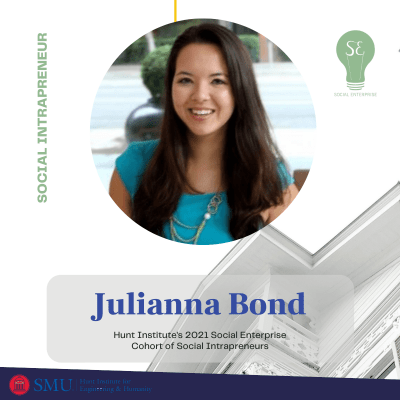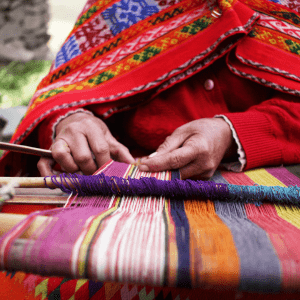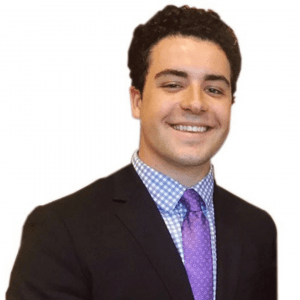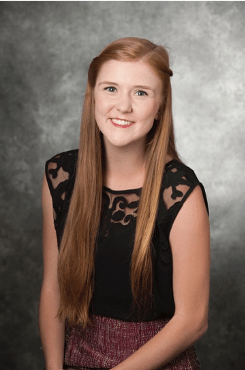Phase II of STEM Up continues to evolve, featuring a Wi-Fi-generating computer cart to be used in combination with the solar power being produced at Tintinto Primary and Secondary School in The Gambia. Wilkie Stevenson, an alumnus of SMU Lyle School of Engineering, spent the majority of his college employment as an Undergraduate Research Analyst for the Hunt Institute where he worked on various projects, such as STEM Up, that are designed to support rural access to digital education in communities around the world. Early on in Mohammed Njie’s project research for Illuminating Tintinto, he and Wilkie began to discuss the potential of their two projects collaborating, with STEM Up going to The Gambia to be tested.
September 24, 2021, we welcomed a multi-disciplinary and multi-national audience for a demonstration of the STEM Up Phase II prototype on its way to The Gambia to be beta tested. Joining us for the demonstration was Haddijatou Lamin Njie, an International Development Expert with over 25 years of working with government, multilateral organizations, and international non-government organizations (NGOs) in The Gambia.
Ms. Lamin Njie responded to the demo with, “For me, this prototype opens doors. It is a huge entry point with so much possibility to build on and contextualize.” Considering Ms. Lamin Njie’s proven track record of leading and evaluating development programs, her words offered humbling confirmation that the STEM Up Phase II project is on the right track towards making an impact.
Wilkie graduated in 2020 amidst the global pandemic. After graduation, he continued to work on the STEM Up concept, designing a unit that will broadcast digital educational resources over Wi-Fi. Using the solar power produced at Tintinto Primary and Secondary School, the theory is to utilize low-cost and low-power servers, along with refurbished laptops, to outfit a computer lab. The Wi-Fi generated by the computer cart can also be used by other devices in addition to the supplied computers. With no internet connection in Tintinto, the STEM Up team decided to create a unique solution. Instead of attempting to provide internet to remote schools, they took the approach of downloading vast amounts of open source educational media and creating a static, offline version of the internet. This allows for a variety of educational media and digital materials to be accessible by any device connected to the open WiFi network, without internet connection. With years of pre downloaded educational media, this system will not only bridge the digital divide but will also teach computer literacy so that communities are prepared to take full advantage of the internet once they are connected. Open source materials include Wikipedia, Khan Academy, Crash Course, and Ted Talks, along with open-source K-12 educational resources. In addition, the hard drive contains the entire Project Gutenberg (one million books), WikiEM, and much more.
This redesign is the essence of STEM Up Phase II. It is essentially a computer cart functioning as a starter kit for a computer lab. The school was designed with a computer lab, but it has sat empty since its completion. The teachers and students in Tintinto Primary and Secondary School have agreed to beta test the concept and provide invaluable feedback. The goal is for teachers to be able to curate and preload materials, media, and interactive games to augment their curriculum, as they introduce computers and digital learning materials to the classroom experience.
According to Statista, “The lack of digital skills concerns a large share of the African population. In 2019, the adoption rate of digital skills stood at only 10 percent in Mozambique and 23 percent in Côte d’Ivoire, meaning that most of the people were not able to use digital devices and applications, nor access the internet.” Rural areas in Africa are lagging behind the development of urban areas due to many factors, with a major one being infrastructure which dramatically affects the level of education that teachers are able to provide their students. In recent years, the development community has started identifying the Global North vs. the Global South based on indicators like access to education and technology. In The Gambia, a West African country surrounded by Senegal, just 48% of people have moderate, yet sometimes unreliable, access to electricity (typically in urban areas) and the remaining 52% have no access (typically remote rural areas). Solar energy and distributed generation are transforming rural communities. Organizations like Barefoot College and Janta, Mohammed’s social enterprise, seek to mitigate this lag with distributed generation that individuals and communities own. With this research, we hope to take it one step further and add access to a computer lab for rural schools.
Mohammed and Wilkie plan to travel to Tintinto village to train the teachers on the computers and to test the system’s tolerance for the conditions at the school. Risk management is an important piece of the project design, with factors such as dust, heat, moisture, and environmental conditions being considered. Technical limitations like battery life and hours of daylight for recharging after school are all variables that are also being considered in the planning stage.
Stay tuned to the Hunt Institute Digest to watch this project unfold.
To read more about the Hunt Institute’s work to develop future-focused solutions to some of the world’s biggest problems, please click here. For the latest news on the Hunt Institute, follow our social media accounts on LinkedIn, Facebook, and Instagram. We invite you to listen to our Podcast called Sages & Seekers. If you are considering engaging with the institute, you can donate, or sign-up for our newsletter by emailing huntinstitute@smu.edu.















